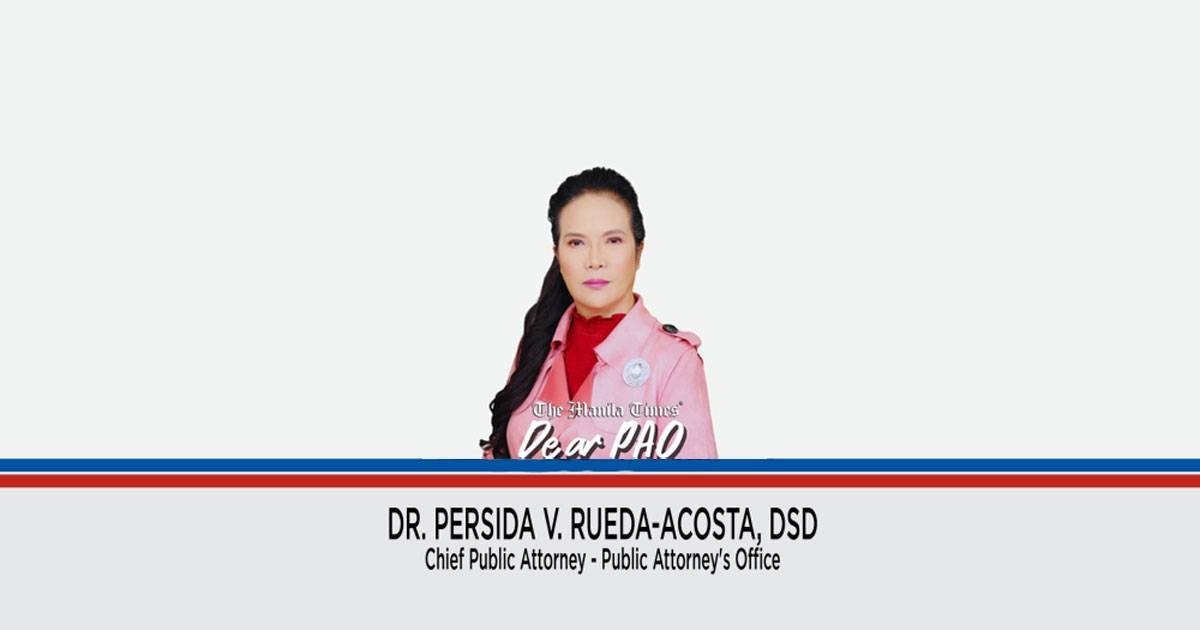
Dear PAO,
I have a question regarding a work-related injury sustained by my brother, who is a seafarer. He was repatriated to the Philippines on July 20, 2024, due to a hand injury. Upon his arrival, he immediately consulted their company-designated physician. After a month, the company-designated physician issued a fit-to-work certification to him. Unsatisfied with the results, he consulted his own choice of physician, believing that he was totally and permanently disabled from working. His chosen physician certified that my brother was “medically unfit to work in any capacity as a seaman.” Whose findings shall prevail?
Grace
Dear Grace,
The 2010 Philippine Overseas Employment Administration–Standard Employment Contract (POEA-SEC) plays a crucial role in protecting the rights and welfare of overseas Filipino workers (OFWs), particularly seafarers. This contract ensures that OFWs are treated fairly by establishing clear guidelines for wages, working hours, and working conditions. It standardizes the terms of employment across different countries and sectors, which helps in maintaining consistent working conditions for OFWs, regardless of where they are employed. It offers clear and precise terms and conditions, reducing confusion and misunderstandings between employers and employees about their respective responsibilities and entitlements. The POEA-SEC mandates employers to provide a safe and healthy working environment, among others, which is essential in preventing occupational hazards and ensuring the well-being of workers.
According to the Supreme Court’s decision in the case of Philippine Transmarine Carriers Inc. v. Almario C. San Juan (GR 207511, Oct. 5, 2020, Ponente: Associate Justice Ramon Paul Hernando), when a seafarer sustains a work-related illness or injury while on board the vessel, his fitness or unfitness for work shall be determined by the company-designated physician. But if the seafarer seeks a second opinion from another physician, and the results conflict with those of the company-designated physician, then a referral to a third doctor is mandatory.
It was explained in the case: “Settled is the rule that when a seafarer sustains a work-related illness or injury while on board the vessel, his fitness or unfitness for work shall be determined by the company-designated physician, and that ‘in case of conflicting medical assessments between the company-designated physician and the seafarer’s own physician, referral to a third doctor is mandatory; and that in the absence of a third doctor’s opinion, it is the medical assessment of the company-designated physician that should prevail.'”
Relevant to this rule is Section 20(A)(3) of the 2010 POEA-SEC, which partly states: “For this purpose, the seafarer shall submit himself to a post-employment medical examination by a company-designated physician within three working days upon his return except when he is physically incapacitated to do so, in which case, a written notice to the agency within the same period is deemed as compliance. In the course of the treatment, the seafarer shall also report regularly to the company-designated physician, specifically on the dates as prescribed by the company-designated physician and agreed to by the seafarer. Failure of the seafarer to comply with the mandatory reporting requirement shall result in his forfeiture of the right to claim the above benefits.
If a doctor appointed by the seafarer disagrees with the assessment, a third doctor may be agreed jointly between the employer and the seafarer. The third doctor’s decision shall be final and binding on both parties.”
Thus, in the situation of your brother, the conflicting medical assessments from the company-designated physician and his chosen physician necessitate a referral to a third doctor, mutually agreed upon by both your brother and his employer. The findings of the third doctor shall be final and binding. Otherwise, the medical assessment of the company-designated physician, which is adverse to your brother, will prevail.
We hope that we were able to answer your queries. This advice is based solely on the facts you have narrated and our appreciation of the same. Our opinion may vary when other facts are changed or elaborated.
Editor’s note: Dear PAO is a daily column of the Public Attorney’s Office. Questions for Chief Acosta may be sent to [email protected]








